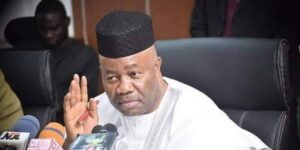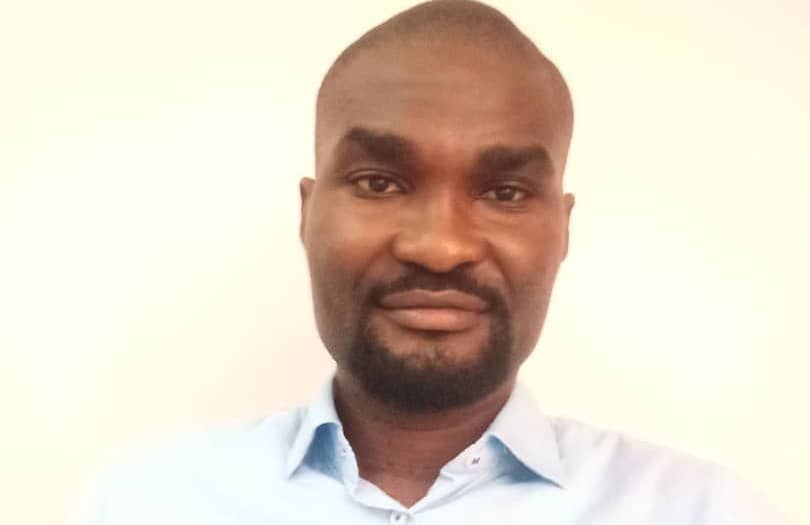By Nnamdi Elekwachi
Currently, the Nigerian Tenth Senate is facing a nationwide opprobrium following an interview Senator Ningi (PDP, Bauchi Central) granted with the BBC (Hausa Service) alleging that there had been some infraction in the implementation of the 2024 appropriation.
The Nigerian social media and news spaces, last week, were agog with Ningi’s interview wherein the embattled lawmaker claimed that the National Assembly passed a budget of ₦25tn while President Tinubu is implementing a budget of ₦28.7tn, which is in excess of the one passed by the lawmakers to the tune of ₦3.7tn. The meaning is that presently in Nigeria, parallel budgets are running in the same fiscal year. Ningi doubled down at the height of the crisis still claiming that some headings in the budget had no allocations. With the pressure not letting up, the senate decided to convene and look into the startling claims made by Ningi.
Ningi’s outbursts, of course, did not start with his BBC interview. The senator – until his resignation and suspension – led the Northern Senators Forum for eight months; a forum whose release recently claimed that the 2024 budget disfavoured the North after the Federal Government decided to move some offices of the apex bank and other government departments to Lagos, away from Abuja. The release, many said, was provincial but one co-signatory was perceived as the sponsor-in-chief -Abdul Ningi.
While Ningi’s budget padding claim was near imprecise at some point because he made self-contradictory statements by first insisting that there was budget padding only to recant afterwards claiming that he had been ‘quoted out of context’ in the same breath, his claims indirectly uncovered a lot of things all Nigerians should interrogate considering the disbursement of constituency project funds and what each senatorial zone of the federation gets.
The senate indeed has offered explanations to some of the allegations at issue, but it does not suffice. The headings without allocations, said Senator Solomon Adeola, chairman senate committee on appropriation, were first line items for certain government-owned enterprises, GOEs. But the irony here is that currently there exist about 48 or so government-owned enterprises, GOEs also known as ‘super agencies,’ and according to official estimates, these GOEs (now gulping ₦3.7 trillion of the 2024 appropriation) are targeting only ₦2.9 trillion as internal revenue, meaning a huge deficit already. Story for another day!

Two fresh weighty allegations surfaced during the plenary on allegation of budget padding; both border on skewed sharing of constituency project funds and the discriminatory pay and packages senators go home with. In defence of his case a comradeless Ningi, abandoned even by his Northern colleagues, said that some constituencies got ₦150bn while others got less, which goes to establish that some constituencies are accorded preferential treatment. He also berated the pay structure of the senate because, according to him, some senators earn more than others. The senate president, for example, Ningi said, receives an undisclosed salary, maintains a vague number of aides, domestic staff, vehicles and enjoys other appurtenances whose costs are borne by the nation!
In what looked like a corollary to Ningi’s position, Senator Jarigbe Agom Jarigbe (PDP, Cross River North) interjected and expanded the inequality debate. Jarigbe who alleged culpability on the part of the entire senate members held that members are paid based on order of seniority, and that while he was a senior member, he still got ₦75m whereas other fellow senior or ranking senators got ₦500mn for their constituency projects!
The allegations made by Senators Ningi and Jarigbe, both PDP, depict the height of financial injustice and are deserving some national interrogation. Why would a senator earn less than a fellow senator, and why would a constituency earn less than a constituency in an assembly where members are elected on equal basis and the same election cycle, is it part of the senate standing rules? Where, in our laws, is it enshrined?
For now, Jarigbe and Ningi deserve our collective gratitude. Both are top members of the senate, even Ningi himself is a member of the committee on appropriation, an insider. He (Ningi) is also chair of the committee on population. The allegations are insiders’ accounts and first-hand experiences, not some made-up stories. To think they were made even at the floor of the hallowed chamber!
If there is a chamber where the injustices the two lawmakers pointed out are to be the order of the day, it shouldn’t be the senate. For one, the senate comprises three lawmakers from each state in the federation, regardless of whatever demographic considerations, unlike the House of Representatives where states get legislative seats in proportion to the number of constituencies. The senate membership structure, to me, is an embodiment of the notion of ‘equality of states;’ so why treat certain senatorial zones and senators thereof discriminatorily?
What are the bases for sharing constituency project funds? Poverty index? Educational needs? Developmental needs? Landmass? Population? What? Such sentiments should not be entertained at the senate because they are already the benchmarks for horizontal revenue sharing amongst the thirty-six federating states. A skewed arrangement like this will only birth one thing: uneven development.
The allegation of different pay for the same lawmakers, of course, explains why senators jockey and go the extra mile just to become a ‘principal official’ at the National Assembly. There goes the valid proposition that among the 109 distinguished senators, there are ‘senators’ and there are ‘senior senators,’ and that some are more senators, even more distinguished, than other senators.
Senate President Godswill Akpabio has much on his hands with these allegations. He’s been fingered in numerous corruption offences and rackets even before those claims. He must investigate these claims to the letter. There is no closure yet, he must address the problem. Running to Aso Rock to hold a ‘behind-closed-door’ meeting with Tinubu when there is a crisis at the senate already portrayed him in a negative light because the legislature is a co-equal arm of government with the executive.
Nigeria’s fiscal laws need to be reviewed. In many democracies the world over, budgets are planned and designed by the executive, which also implements it. Whatever role lawmakers play is to give it a force of law after oversight – asking questions and holding hearings on the proposed sums to ensure viability. In the Nigerian context the appropriation committee and other relevant subcommittees work closely to harmonise the budget, even as the two houses through concurrence pass the budget into law, but it is an outright breach that lawmakers now smuggle extra-executive items into the budget by way of padding.
‘Padding,’ being an unwritten convention had been there all along, but was amplified when the Saraki-led Eighth
Assembly jerked up the 2017 and 2018 numbers respectively by inserting new projects into the document and increasing their own allocation. This is the mess a man like Akpabio must stop.
A fiscal policy reform is needed, especially one that spells out and sets the boundaries and defines the limits of powers the legislature has vis-à-vis the executive in the making and framing of the budget. Also, there is a need to make open what the salaries of lawmakers are, such budgetary provision should not come as first line charge or under statutory transfer.
The whole development calls for critical reforms the leadership of the senate must not ignore. But, does Akpabio look the part?
Elekwachi, a historian writes from Umuahia, Abia State.

